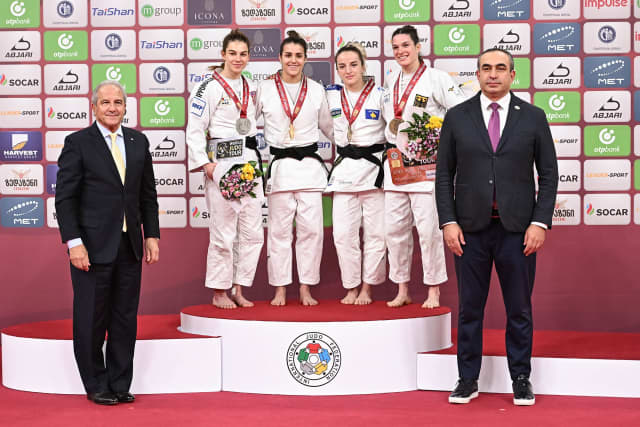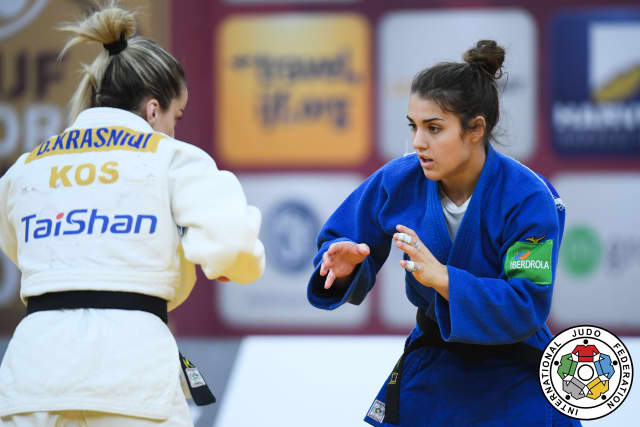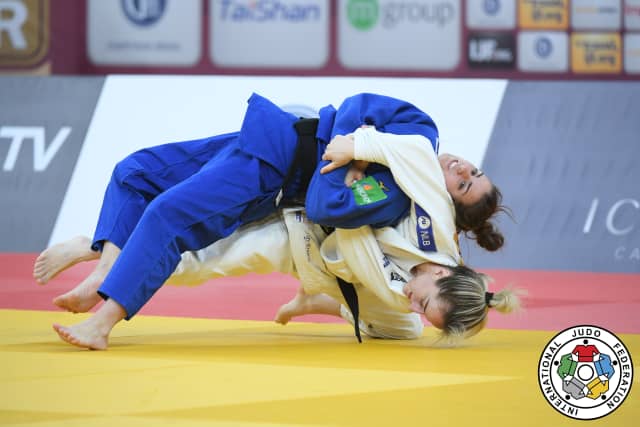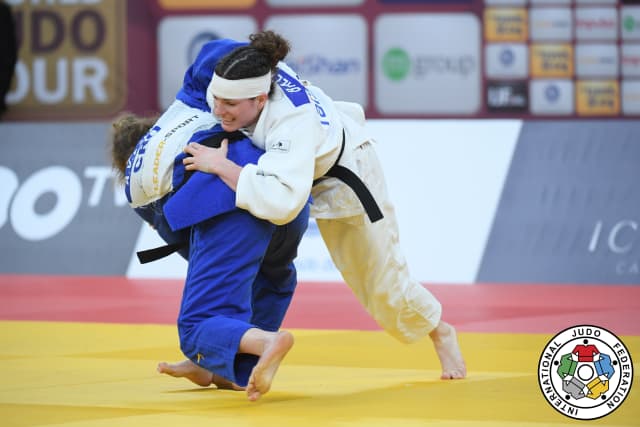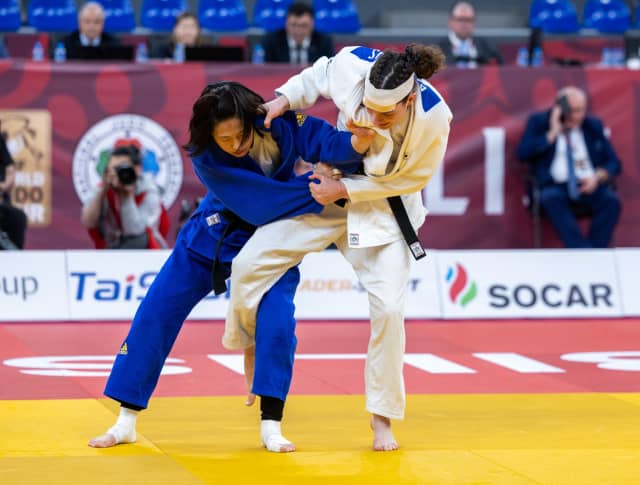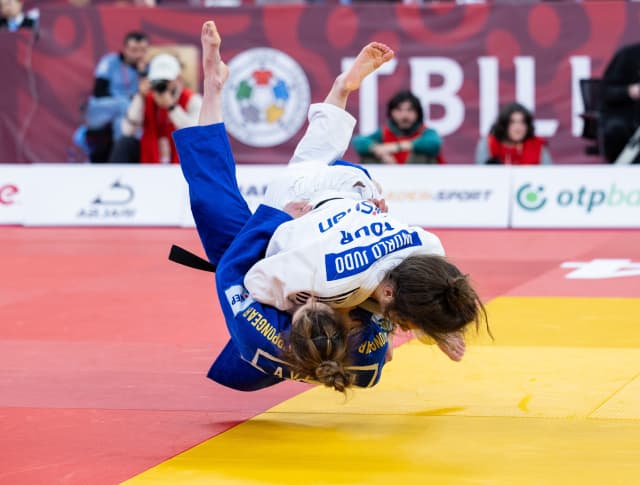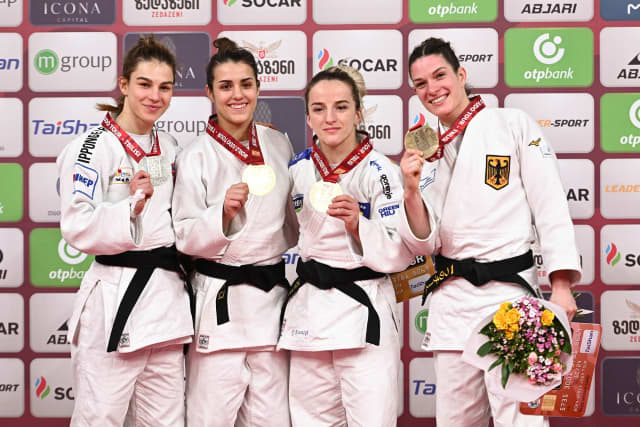Krasniqi had won her first fight with two throws, concluding with ippon scored for a smooth ashi-guruma just ahead of the 2 minute mark. Her second contest began similarly, the Kosovan taking the lead very early, a waza-ari on the board from a sasae-tsuri-komi-ashi in the first 10 seconds of the match. After that though, she struggled to find her timing and looked to be unable to reach the sharpness and energy we see in her when at her best. She held the score for the win but it looked like a sign of things to come and it was.
In the quarter-final the Spanish youngster took Krasniqi right to the wire and at 10 minutes of contest time there were a pair of penalties on the board under each name. Nothing seemed to be connecting for the Olympic champion and so in a brave move, Toro Soler chose to place herself under Krasniqi, propelling her over for a positive finish to a very long and tiring contest.
Toro Soler has bronze medals from Paris and Baku this year and now she has her first place in a grand slam final. Her ko-uchi-gake in the semi-final against Jang (KOR) looked inspired. Her opposition in the final was another grand slam final debutante, Viktorija Ana Puljiz (CRO). She had won 2 grand prix medals prior to Tbilisi but never a grand slam medal and so this was a new dawn for the 22 year old Croatian.
Puljiz, unseeded, passed through her first contest when Lopez Sheriff (ESP) took herself out of the equation with a head dive. Her next win was against Carbonell Julian (CUB) by 3 penalties. Her first positive score came in the quarter-final against number 2 seed Mascha Ballhaus (GER), an expertly timed o-uchi-gari earning the points to place her in a semi-final against Zhu (CHN). This was also won by the Croatian when the Chinese athlete was disqualified for a head dive.
We cannot repeat enough that the head may not be the first point of contact in a throwing action. The dangers are too great and the example to younger athletes is unacceptable. Puljiz maintained a positive style and didn’t make these mistakes in Georgia and so her place in the final, her first final at this level, can be attributed, at least in part, to her practising a safe kind of judo and one that obeys the rules of the game.
The first bronze medal contest was between Krasniqi and Yeqing Zhu. This contest brought the Krasniqi we are used to back to the mats. In the opening exchange she threw Zhu with uki-goshi for waza-ari and just before the two minute mark she doubled the score, throwing with sasae-tsuri-komi-ashi to secure the medal.
The second bronze medal was set to go home with either Ballhaus or Jang and the latter enjoyed a similar rhythm to that of Krasniqi in the previous contest, putting a waza-ari on the board straight away with a sumi-gaeshi. However, unlike the first bronze medallist of the category, she struggled to maintain the offensive and picked up 2 penalties easily against the pressure of the German. Several failed attacks later and the Korean gave away the medal.
In the final Toro Soler and Puljiz were both keen to take maximum points. The Spaniard though has already achieved something special in Georgia as although she started the day 4 places behind her teammate Lopez Sheriff in the rankings, that only equates to 200 points or so. Lopez Sheriff exited early and either a silver or a gold would springboard Toro Soler way past her. Toro Soler would be the Spanish number one regardless of the result in the final.
Puljiz was certainly the more aggressive of the two, thrusting her right hand over the top repeatedly. However, the scoreboard at full time showed an even effort, two penalties logged for each. Forty seconds into golden score Puljiz attempted to play at the hip but the Spanish judoka embraced the challenge and launched the Croatian with a huge uchi-mata for ippon.
